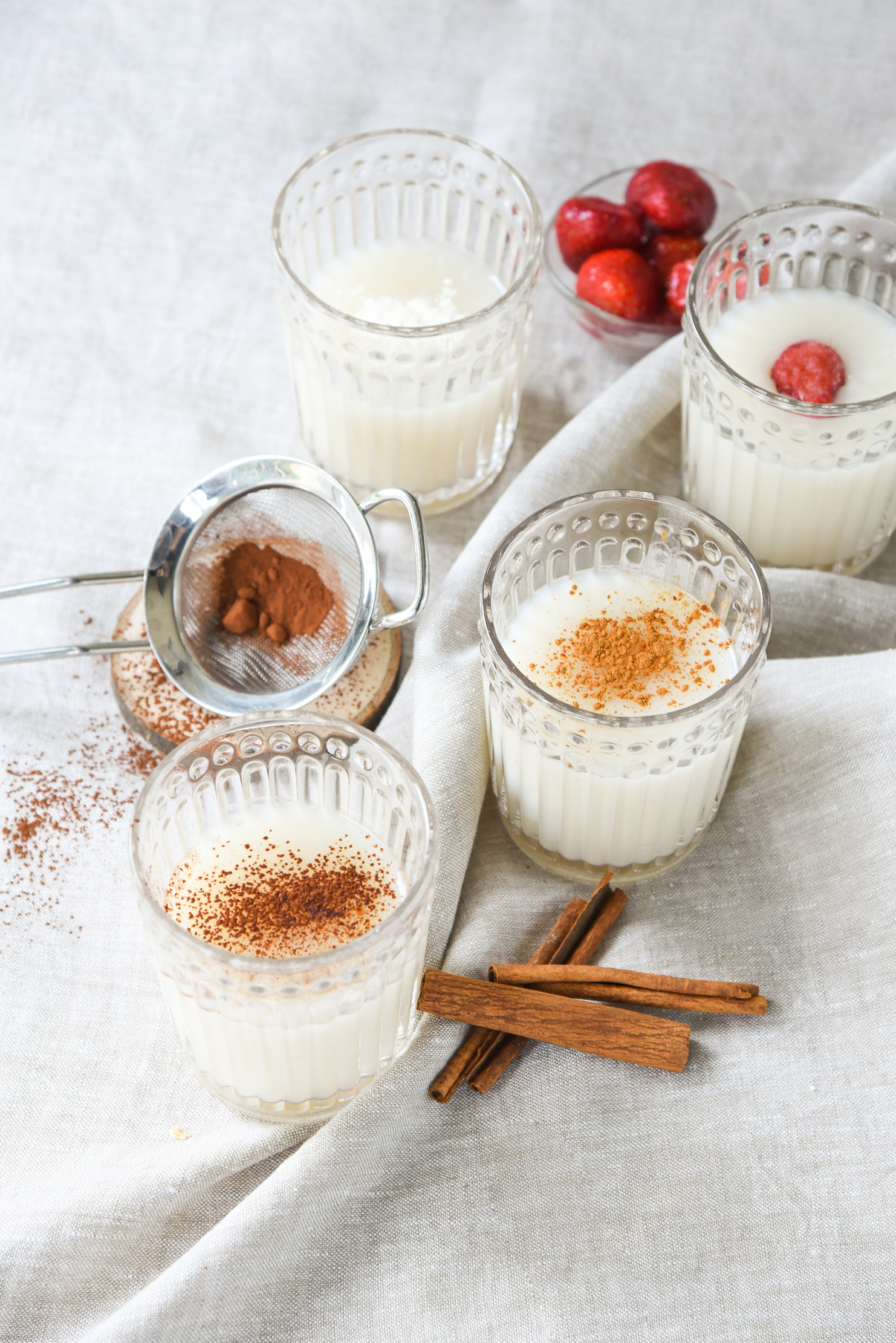One of my favourite superfoods

Oat milk is a true superfood which has been a part of my diet for years and I will not change for anything! Despite being a plant-based milk it can happily replace cow's milk. It is equally nutritious, but does not contain lactose and allergens, which makes it ideal for those who are allergic to milk of animal origin or nut milk. It is also suitable for people with gluten intolerance, but also for vegetarians. It is undoubtedly a milk that suits many, which is why it has become so popular!
The 2nd Most Popular Plant-Based Milk
Supermarkets in the recent years offer a great variety of plant-based milk (soy, coconut, rice, cashews, etc.), all excellent choices for individuals who cannot or do not want to consume cow's milk or other milks of animal origin (goat, sheep, buffalo, etc.). Oat milk was discovered in 1990 by Swedish scientist Rickard Oste, but began to be widely marketed over the last five years where it managed to climb to the 2nd place of the most commercial plant-based milks on the American market, just after almond milk.
5 + 1 Reasons to Choose Oat Milk
Hypoallergenic: Unlike soy milk and coconut milk, oat milk does not contain allergens. It can be consumed safely by people who are intolerant to lactose, nuts and gluten.
Nutritious: Oat milk packs a powerful nutritional punch and stands out due to its content of beta-glucans, a valuable type of fibre that has the ability to keep the blood levels of “bad” cholesterol (LDL) low and reduce the risk of cardiovascular disease.
Vegetarian: It is suitable for both vegetarians and vegans.
Creamy: Oat milk stands out for its rich, creamy flavour, compared to other herbal milks that have a more watery consistency, and this has made it an ideal ingredient for coffees, smoothies and other beverages.
Neutral: It has a neutral taste and can therefore be easily used in cooking and pastry making. Use the same amount that you would use with regular milk.
Green: It is a cereal that needs fewer resources for its cultivation. For example, compared to almond trees and cashew trees, oats need less water to grow.
What is contained in a cup of oat milk
Vegetable fibre: One cup of oat milk contains about 3 grams of fibre, more than any other plant-based milk. And, as mentioned, it contains valuable beta-glucans. (*here we will add a link to the article on beta-glucans)
Protein: Oat milk contains about 3 grams of protein, unlike almond milk which contains just 1 gram. Protein is used, among other things, for building and repairing cells and tissues, producing hormones, antibodies and enzymes, the proper functioning of the immune system and vision.
Fat: One cup of oat milk contains 2.5 grams of fat, less than whole cow's milk. In fact, it does not contain any saturated fats.
Calcium: Enhanced oat milk contains about 350-400 mg of calcium, which helps build healthy bones and teeth, move muscles, exchange messages between the brain and the rest of the body, etc. Cow's milk contains only 300 mg of calcium per cup.
Phosphorus: One cup of oat milk provides 20% of the daily recommended dose of phosphorus that the body needs to produce energy and perform various chemical processes.
B12: Oat milk can also be a good source of vitamin B12, which is important for the health of the nervous system.
For more information, you can watch the related video about oat milk on my Goodlife by Gina channel on YouTube, where you will also find ideas for beverages with my favourite plant-based milk!




